Usman Syed
Improved Scalable Lipschitz Bounds for Deep Neural Networks
Mar 18, 2025Abstract:Computing tight Lipschitz bounds for deep neural networks is crucial for analyzing their robustness and stability, but existing approaches either produce relatively conservative estimates or rely on semidefinite programming (SDP) formulations (namely the LipSDP condition) that face scalability issues. Building upon ECLipsE-Fast, the state-of-the-art Lipschitz bound method that avoids SDP formulations, we derive a new family of improved scalable Lipschitz bounds that can be combined to outperform ECLipsE-Fast. Specifically, we leverage more general parameterizations of feasible points of LipSDP to derive various closed-form Lipschitz bounds, avoiding the use of SDP solvers. In addition, we show that our technique encompasses ECLipsE-Fast as a special case and leads to a much larger class of scalable Lipschitz bounds for deep neural networks. Our empirical study shows that our bounds improve ECLipsE-Fast, further advancing the scalability and precision of Lipschitz estimation for large neural networks.
Material synthesis through simulations guided by machine learning: a position paper
Nov 21, 2024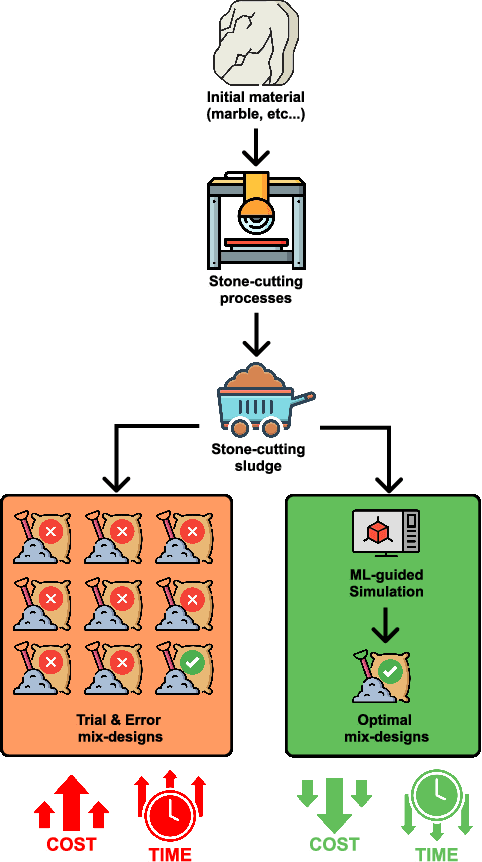
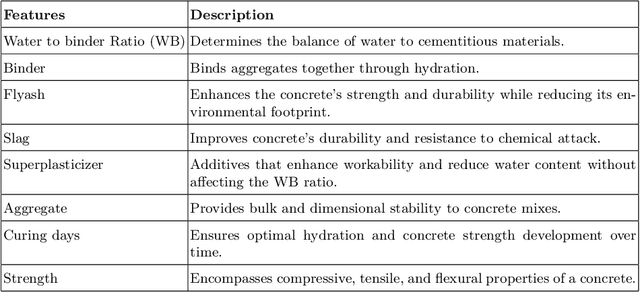
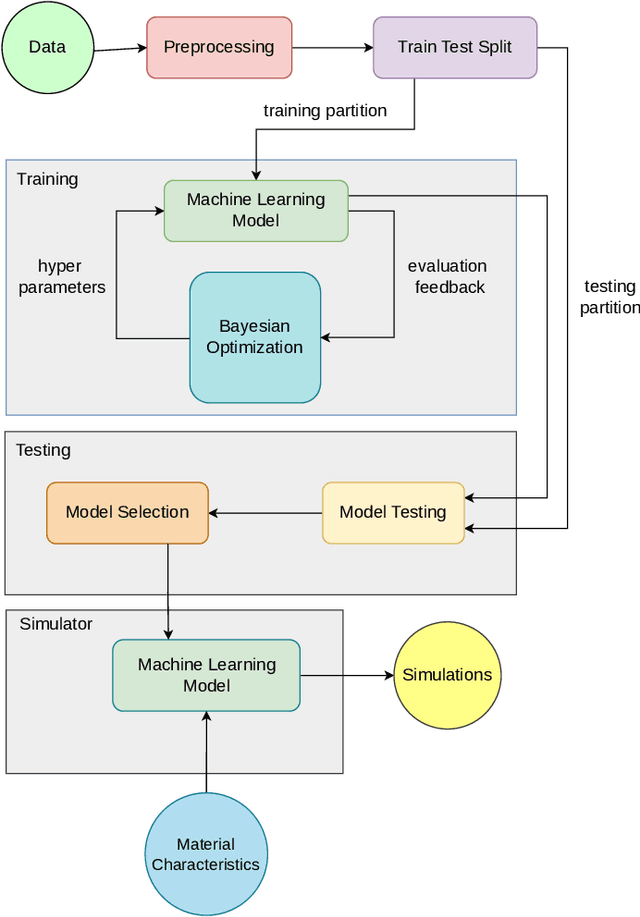

Abstract:In this position paper, we propose an approach for sustainable data collection in the field of optimal mix design for marble sludge reuse. Marble sludge, a calcium-rich residual from stone-cutting processes, can be repurposed by mixing it with various ingredients. However, determining the optimal mix design is challenging due to the variability in sludge composition and the costly, time-consuming nature of experimental data collection. Also, we investigate the possibility of using machine learning models using meta-learning as an optimization tool to estimate the correct quantity of stone-cutting sludge to be used in aggregates to obtain a mix design with specific mechanical properties that can be used successfully in the building industry. Our approach offers two key advantages: (i) through simulations, a large dataset can be generated, saving time and money during the data collection phase, and (ii) Utilizing machine learning models, with performance enhancement through hyper-parameter optimization via meta-learning, to estimate optimal mix designs reducing the need for extensive manual experimentation, lowering costs, minimizing environmental impact, and accelerating the processing of quarry sludge. Our idea promises to streamline the marble sludge reuse process by leveraging collective data and advanced machine learning, promoting sustainability and efficiency in the stonecutting sector.
Benchmarking the Capabilities of Large Language Models in Transportation System Engineering: Accuracy, Consistency, and Reasoning Behaviors
Aug 15, 2024Abstract:In this paper, we explore the capabilities of state-of-the-art large language models (LLMs) such as GPT-4, GPT-4o, Claude 3.5 Sonnet, Claude 3 Opus, Gemini 1.5 Pro, Llama 3, and Llama 3.1 in solving some selected undergraduate-level transportation engineering problems. We introduce TransportBench, a benchmark dataset that includes a sample of transportation engineering problems on a wide range of subjects in the context of planning, design, management, and control of transportation systems. This dataset is used by human experts to evaluate the capabilities of various commercial and open-sourced LLMs, especially their accuracy, consistency, and reasoning behaviors, in solving transportation engineering problems. Our comprehensive analysis uncovers the unique strengths and limitations of each LLM, e.g. our analysis shows the impressive accuracy and some unexpected inconsistent behaviors of Claude 3.5 Sonnet in solving TransportBench problems. Our study marks a thrilling first step toward harnessing artificial general intelligence for complex transportation challenges.
Capabilities of Large Language Models in Control Engineering: A Benchmark Study on GPT-4, Claude 3 Opus, and Gemini 1.0 Ultra
Apr 04, 2024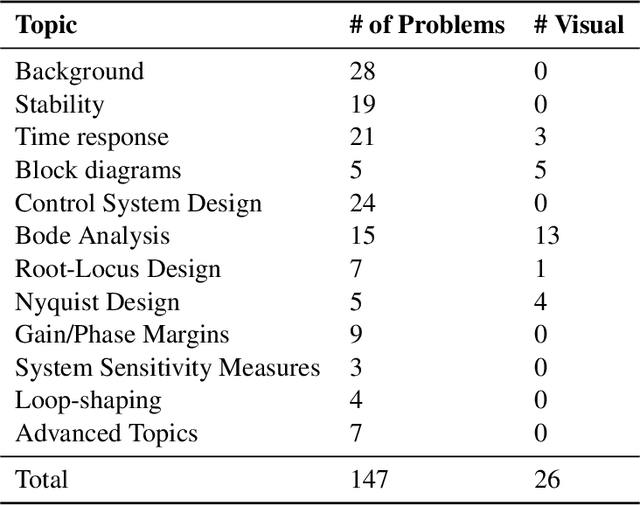
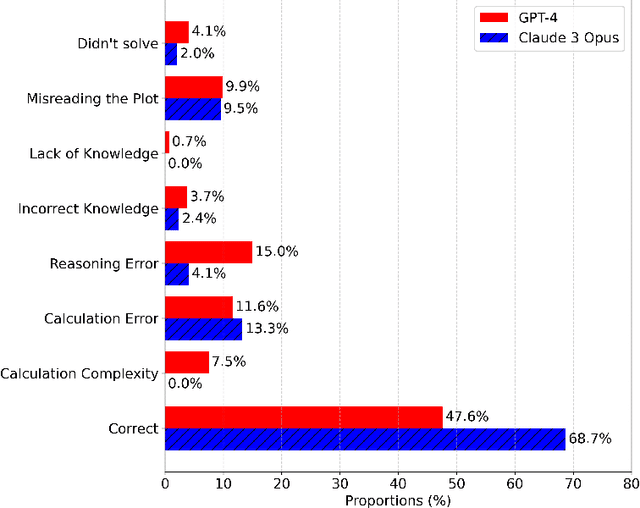
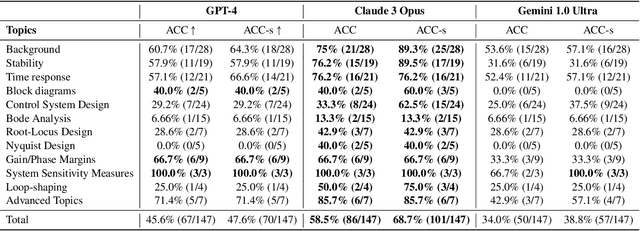
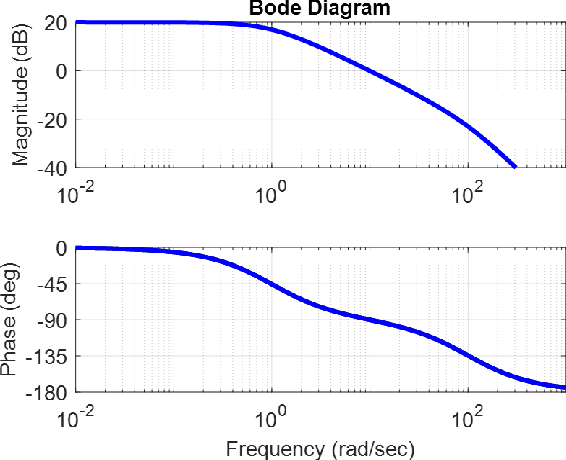
Abstract:In this paper, we explore the capabilities of state-of-the-art large language models (LLMs) such as GPT-4, Claude 3 Opus, and Gemini 1.0 Ultra in solving undergraduate-level control problems. Controls provides an interesting case study for LLM reasoning due to its combination of mathematical theory and engineering design. We introduce ControlBench, a benchmark dataset tailored to reflect the breadth, depth, and complexity of classical control design. We use this dataset to study and evaluate the problem-solving abilities of these LLMs in the context of control engineering. We present evaluations conducted by a panel of human experts, providing insights into the accuracy, reasoning, and explanatory prowess of LLMs in control engineering. Our analysis reveals the strengths and limitations of each LLM in the context of classical control, and our results imply that Claude 3 Opus has become the state-of-the-art LLM for solving undergraduate control problems. Our study serves as an initial step towards the broader goal of employing artificial general intelligence in control engineering.
 Add to Chrome
Add to Chrome Add to Firefox
Add to Firefox Add to Edge
Add to Edge